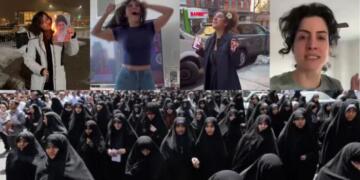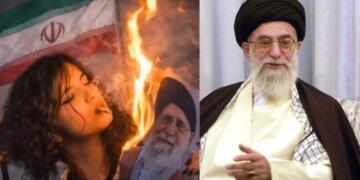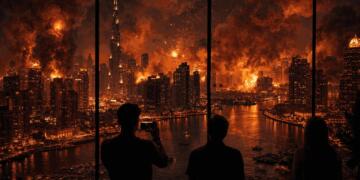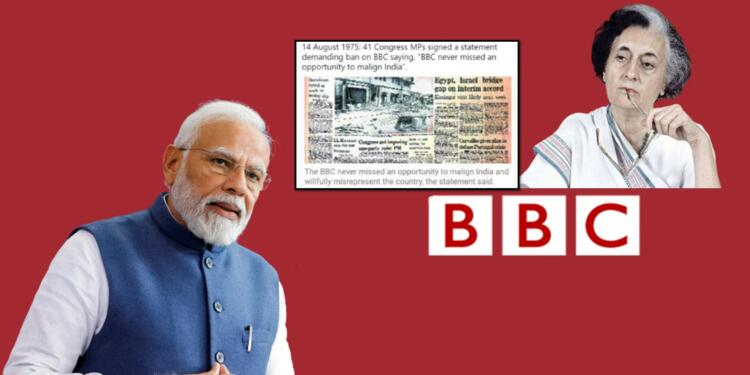BBC Modi documentary: On June 10, 1970, BBC aired a film depicting India in a negative light. This was followed by another anti-India film which was broadcast on June 23, 1970. In response, on July 1, 1970, the Indian Embassy in Britain sent a letter to BBC and the British Foreign Office, urging them not to show such films.
On July 29, 1970, the Indian government, led by Prime Minister Indira Gandhi, ordered BBC to be expelled from the country. Fast forward to January 2023, BBC aired another anti-India documentary. The Indian government responded to it by banning the documentary and suddenly the Congress party declared it to be an ‘undeclared emergency.’
Opposition in support of BBC documentary
Many from the opposition believe that the documentary is an important way to shine a light on important issues that need to be addressed and has the potential to bring about positive change. Supporters have also praised BBC for its commitment for delivering impartial and balanced reporting.
But the truth is, BBC two-part documentary called “India: The Modi Question” appears to have a single agenda. The agenda is to portray Prime Minister Narendra Modi as a hostile figure towards Muslims.
This BBC documentary was released to demonstrate the alleged mistreatment of Muslims under Prime Minister Modi’s rule. The production quality of the documentary is impressive. However, what is missing from it is factual evidence. The documentary does not provide sufficient evidence to support its claims.
The unfortunate reality of the current Indian political landscape was revealed when the Government intervened to ban the BBC documentary. Twitter posts and YouTube videos containing the link of the documentary were taken down. This prompted opposition parties to enter the fray, providing an insightful look into the current state of Indian politics.
The opposition parties looked united in their resistance to ban the documentary. They expressed their disapproval of the Supreme Court’s decision and voiced their support for BBC. Many openly criticised Prime Minister Modi and the Bharatiya Janata Party for the ban. TMC MP Mahua Moitra share the link of the BBC documentary through a tweet.
Sorry, Haven’t been elected to represent world’s largest democracy to accept censorship.
Here’s the link. Watch it while you can.
(Takes a while to buffer though) https://t.co/nZdfh9ekm1
— Mahua Moitra (@MahuaMoitra) January 22, 2023
Derek O’Brien, a member of the Trinamool Congress party, joined in protesting the ban on the documentary.
https://twitter.com/derekobrienmp/status/1616247977294827520
As chants of censorship broke out, something unexpected happened. TMC is a regional party and has never held power at the centre. They can protest in favour of their political beliefs, but the Indian National Congress cannot do the same. They have never hesitated to impose an Emergency and restrict civil liberties, such as media censorship. Therefore, Congress does not have the right to protest. An idiom “pot is calling the kettle black” aptly fits this scenario.
आज हमारे देश में अघोषित आपातकाल है।
मीडिया पर सेंसरशिप है और एक ही व्यक्ति की हुकूमत चल रही है।
: @Jairam_Ramesh जी#BharatJodoYatra pic.twitter.com/YM1Nzn3MJo
— Congress (@INCIndia) January 22, 2023
Also read: Exposing BBC’s new series “India: The Modi Question”
How Indira Gandhi punished BBC
Jairam Ramesh is criticising the current ban on BBC documentary as an ‘undeclared emergency’. But he conveniently fails to mention that Indira Gandhi, the Prime Minister from his own party, had taken even harsher action against BBC in 1970.
BBC’s office in Delhi was shut down and its staff were deported along with their belongings. The reason for this was that BBC was creating anti-India documentaries and films, which is exactly what it is doing today.
The BBC has been accused of having an imperialist attitude in its coverage of India, even to this day. This pride of imperialism can be sensed in its documentaries, where it has been alleged that the BBC is trying to prove someone’s guilt even when they have been cleared by the Highest Indian Judicial System. Now the question that arises is ‘why is BBC trying to bend the truth?’
BBC with its recent documentary is implying that our courts and agencies are not capable of conducting an investigation. It clearly appears that they are trying to show themselves as superior once again.
But this time, the Congress Party is expressing support for the BBC and voicing opposition to the Indian government’s decision to not air the documentary.
On August 14, 1975, a joint statement was released by the members of Congress in which they accused the BBC of continuously defaming India and misrepresenting its image.
“BBC does anti-India reports. That’s why the government should never allow the BBC to set foot on Indian soil.” This statement was from Congress MPs. But what are they doing today? They are claiming that this ban on the documentary is tantamount to an ‘undeclared emergency‘ and are asking why the government felt the need to take such action.
The whole of India is aware of the Prime Minister who had cut off the electricity supply to certain media houses during the ‘real emergency’ and which party they belonged to.
In order to prevent newspapers from being published, the whole of India knows of the Prime Minister who had imprisoned citizens, shackled India’s democracy and arrested leading figures in the country at midnight. In this context, it is highly ironic of the Congress party to cry out about an undeclared emergency.
Support TFI:
Support us to strengthen the ‘Right’ ideology of cultural nationalism by purchasing the best quality garments from TFI-STORE.COM

























